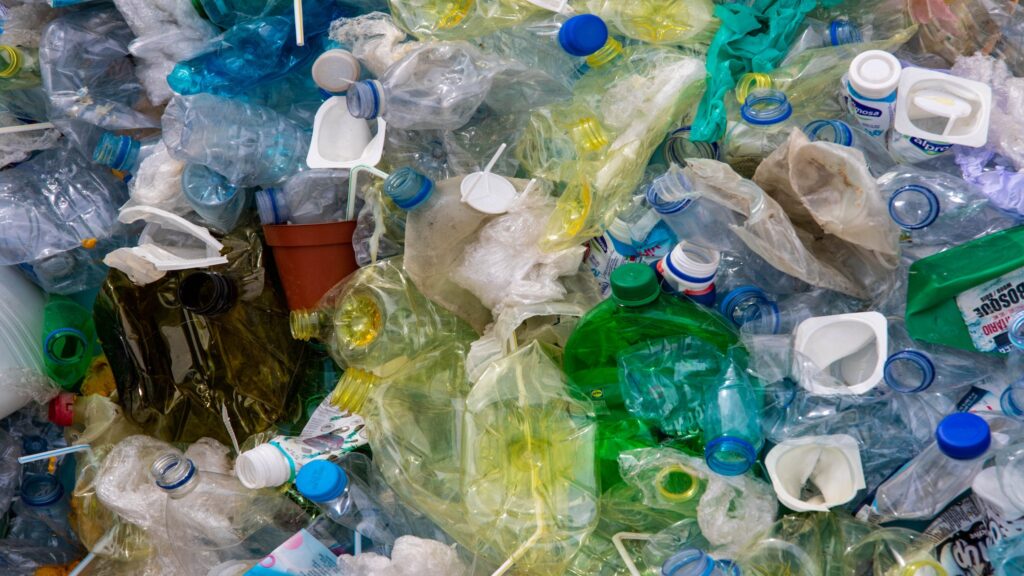
A Kansas State University crop physiologist has found that plastic products – which are well known to cause negative impacts on fish and other aquatic animals – also have an adverse effect on land-based organisms, such as farm crops.
Mary Beth Kirkham, University Distinguished Professor in agronomy who specializes in the relationship between soil, plants and water, said that fact should throw caution to such industries as agriculture in which plastic products are part of doing business.
“Ideally, plastics should break down into water and carbon dioxide, which are two very innocuous (harmless) molecules,” Kirkham said “But studies have shown that the plastics we use just don’t break down. Microorganisms just have not yet evolved to break down the plastics.”
In a greenhouse experiment with wheat, Kirkham showed that the presence of tiny particles of plastic in soil caused water to pool up on the surface and the flooded conditions prevented oxygen from getting to a plant’s roots. She also found that plastic serves as a vector (or vehicle) for plant uptake of such toxic materials as cadmium.
“Many plants died in the month-long experiment,” Kirkham said. “In the plants where cadmium was in the soil with plastic, the wheat leaves had much, much more cadmium than in the plants that grew without plastic in the soil.”
Kirkham explained that plastic is used in agriculture in many ways, commonly as plastic mulch in fields to warm soil in the spring, or to keep weeds out during growing seasons. Greenhouses often are made of plastic material, and fertilizer bags are often made of plastic.
“On the farm, eventually that plastic will break down (due to ultraviolet light, temperature or wind) into what we call microplastics, or very small particles that settle in the soil,” Kirkham said. “So we end up with all of these tiny particles that remain in the soil or move into the aquatic environment.”
In the ocean, fish eat plastic particles, eventually causing them to die. On land, microplastics build up to form a barrier against water infiltration, or they might attract toxic materials to the plant’s roots.
“I know it’s a drastic statement to say,” Kirkham said, “but we just need to get rid of plastics in the environment, because they are never going to break down. They are around forever.”
Plastics used in agriculture are less likely to be recycled, Kirkham said, because residue that is left on such products as fertilizer bags and plastic mulch is hard to clean and, thus, is costly.
Instead, she said, it might be beneficial to simply reduce the use of plastic materials and products, when possible. “I do think it would be beneficial in growing plants, as well as for the whole environment,” Kirkham said.
Kirkham has recently co-edited a book, titled Particulate Plastics in Terrestrial and Aquatic Environments, which will be published by CRC Press later this year. She said her work on that project raised her overall concern about plastic in the world’s environment.“The problem with all of our plastics in the United States is that we used to ship them off to China, but China and a lot of other countries won’t accept them any more,” Kirkham said. “All of this plastic is being shipped back to the United States. We are going to have to find a way to get rid of our plastics. And so far, we don’t have it.”
 Shocking Glyphosate Levels in Popular Bread: Florida’s Eye-Opening Food Testing Report
Shocking Glyphosate Levels in Popular Bread: Florida’s Eye-Opening Food Testing Report Blood Sugar Stability the Organic Way: Low-Glycemic Foods and Meal Ideas
Blood Sugar Stability the Organic Way: Low-Glycemic Foods and Meal Ideas Recycled plastic is a toxic cocktail: Over 80 chemicals found in a single pellet
Recycled plastic is a toxic cocktail: Over 80 chemicals found in a single pellet Study links micro- and nanoplastics to Parkinson’s and dementia
Study links micro- and nanoplastics to Parkinson’s and dementia